Enhancement of papermaking sewage treatment system with Jiangxi Chenming Paper Holdings Ltd.
Bright spot:
① The biochemical system has too much dead mud and contains too much refractory organics. But after 2 weeks of adding bacteria, it has reached the requirement of synergism efficiency.
② Through Bio-Form's measures, the sludge bulking condition of the system has been improved effectively, and system sludge biofacies has been enriched.
Chenming group is the leading enterprise in China's paper industry and the only three bloch listed company in A, B and H. In 2004, Jiangxi Chenming Paper Co., Ltd., integrated pulping, paper making and thermoelectricity, was established at its production base in Jiangxi with a registered capital of 172 million US dollars.
The wastewater mainly consists of pulping wastewater and papermaking wastewater, whose main pollutants are COD and chromaticity. And the wastewater contains a large number of nonbiodegradable organies, such as lignin, fiber, hemi fiber, surface active agent, and substances that are difficult to degrade by undomesticated or unscreened bacteria. Through on-site investigation, the researchers of Bio-Form found that the biochemical systems of Jiangxi Chenming Paper Industry has too much died mud, which could cause the floating a large amount of sludge. And at the same, because of the poor biochemical quality of the degradational organics, the colord bubble would emerge, indicating that the sewage treatment is difficult to deal with.
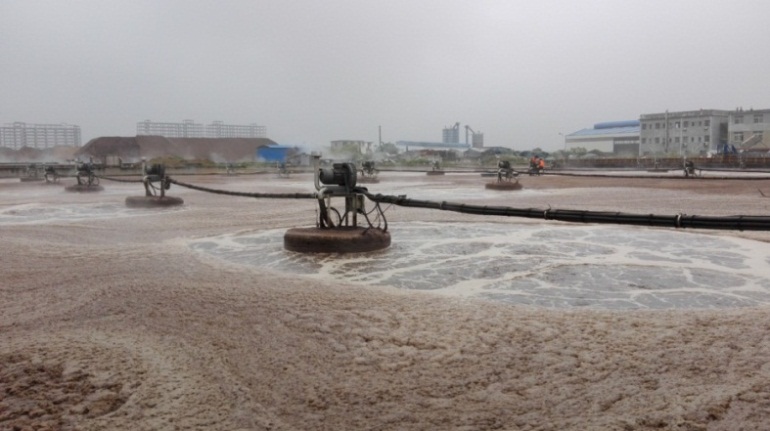
A lot of sludge floats up
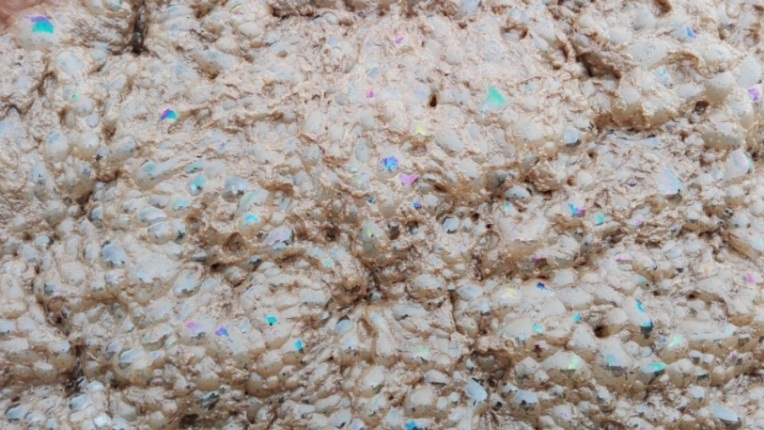
Colord bubble
The quantity of the wastewater treatment system is 30000m3/d, and the process flow chart is as follows:

The quality of the effluent water is as follows:
Table 1 Designed quality of the effluent water
|
|
pH值 |
COD |
|
Effluent of IC reactor |
6-9 |
<2000 |
|
Secondary sedimentation tank |
6-9 |
600-800 |
|
Deep treatment of water inleted |
6-9 |
600-800 |
|
Tinal effluent |
6-9 |
<90 |
* Unit mg/L, apart from pH.
The required water quality enhancement goal of Jiangxi Chenming Paper Industry is as follows:
Table 2 Water quality enhancement requirement
|
|
pH |
COD |
|
Secondary sedimentation tank |
6-9 |
≤500 |
* Unit: mg/L, apart from pH
After the analysis of the biochemical system and wastewater properties, Bio-Form added PP bacterial agent, COD detoxifying agent (paper wastewater), SF bacterial agent and Bio-Form® Biological antidote for synergistic adjustment on April 23. The following is the change diagram of effluent COD before and after adding microbial agents:
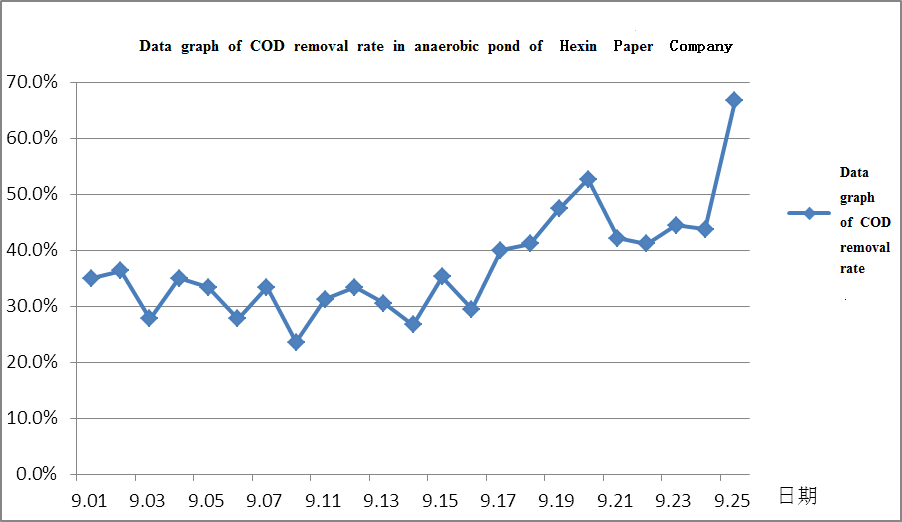
Changes of COD before and after
From the above chart, It can be seen that before adding bacterias, the actual effluent of secondary sedimentation tank is 900 mg/L on April 23. But from the 5th day after adding bacterias, COD effluent showed a marked decline. And the 14th day, COD effluent is declined to497 mg/L.
The following is the analysis of sludge characteristics in biochemical system:
Before the addition of bacteria, the activated sludge in the system had a serious filamentous expansion of activated sludge. And there were lots of free bacteria in the system detected by microscopic. Thus, there were few activated sludge protozoa. The following figure shows the system sludge detected by the 40 times of high magnification. The one on the lower left corner is a paramecium, indicating that the sewage water quality of this system is very poor.
The following figure shows the system sludge detected by the 60 times of high magnification. And it can be seen that there were lat of filamentous bacterias in the sludge (excessive filamentous bacterias will cause the expansion of the sludge).
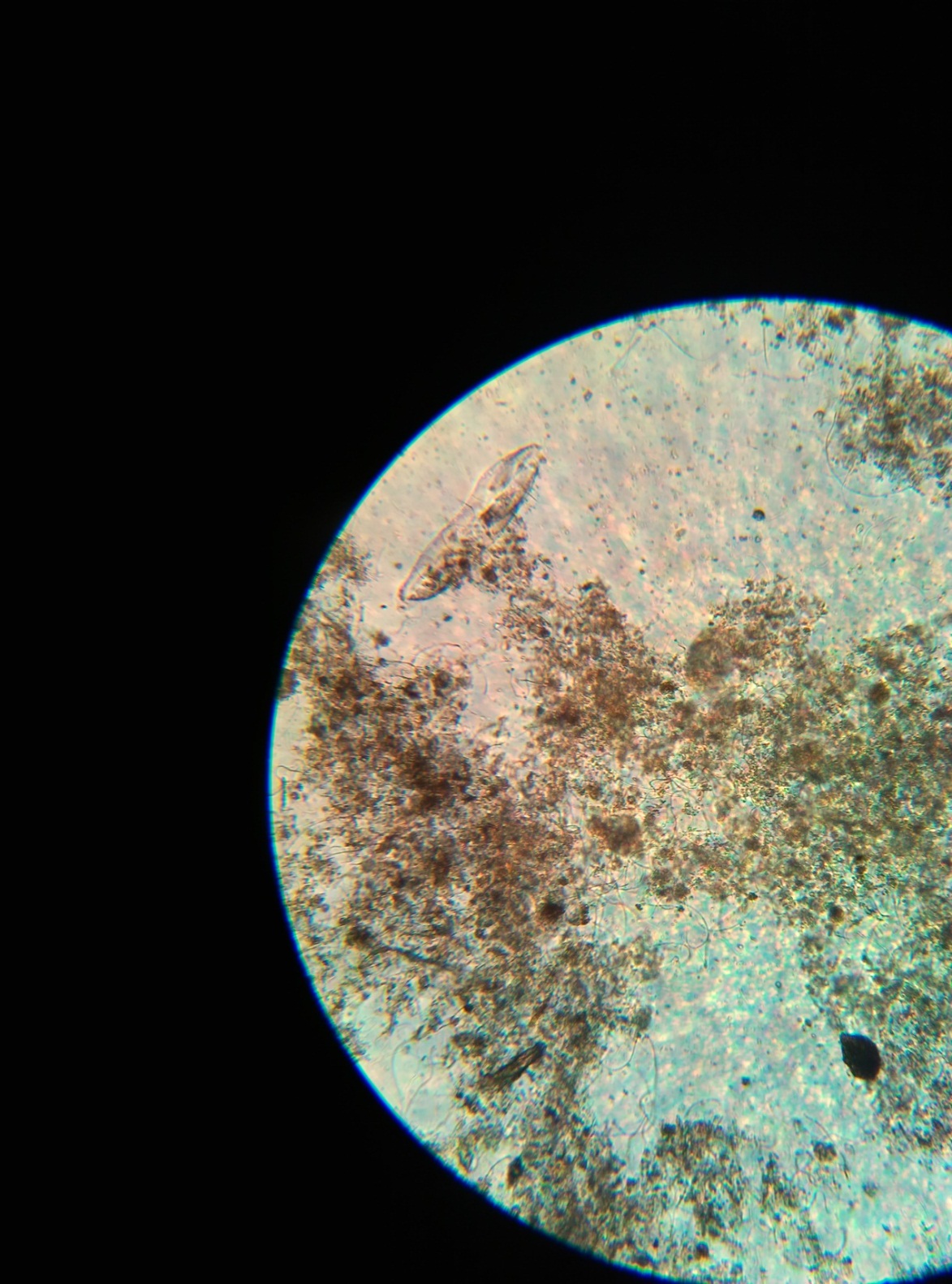
After a week of inoculation, microscopic examination showed that the filamentous bacteria decreased a lot and the mycoplasma was dense, indicating that the filamentous expansion of the system sludge was alleviated. At the same time, a large number of active protozoa and metazoa, such as vorticella, anaspidae, trichinodermata and rotifer were appeared in microscopic examination, indicating the good water quality.
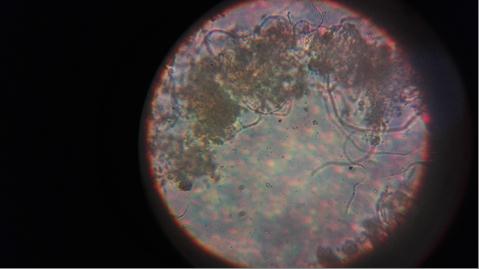
Bio-Form microbial agent can also maintain stable reproduction ability and efficient decontamination effect in bad circumstances, rapidly achieveing the goal of synergism. And at the same time, the expansion of sludge can be slowed down.



